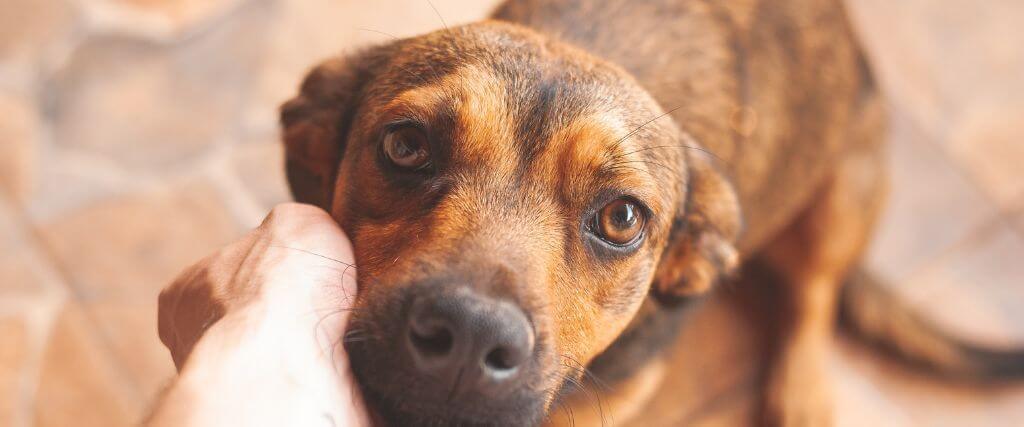A Detailed Look at Causes, Signs, and When to Seek Veterinary Care
At Canyon View Cares, one of the most common concerns we hear from dog owners is: “Why does my dog have diarrhea?” We know how unsettling it can be to see your dog uncomfortable, sick, or showing signs of distress. Diarrhea isn’t just messy, it can also be a sign of something more serious that deserves attention.
While some cases are mild and resolve quickly, others may signal an underlying health problem that requires veterinary care. In small dogs and puppies, even brief episodes of diarrhea can lead to dehydration or dangerous drops in blood sugar (hypoglycemia), which could necessitate emergency treatment. If you notice diarrhea with blood, either bright red or black and tarry, it’s essential to seek care right away.
Here’s a thorough guide to the most common reasons dogs experience diarrhea and how to know when to call us:
Dietary Indiscretion: Eating Something Unusual
Dogs are naturally curious, and sometimes their curiosity leads them to eat things they shouldn’t: table scraps, spoiled food, garbage, or something picked up outside. This is commonly called "garbage gut" and is one of the top causes of acute diarrhea in dogs.
Signs you may notice:
- Loose, watery stools
- Occasional vomiting
- Normal energy and playful behavior
Most mild cases improve with a bland diet (such as boiled chicken and rice) and hydration. If symptoms linger or worsen, it’s time to give us a call.
Sudden Diet Changes
Dogs' digestive systems can be sensitive to abrupt changes in food. Even switching to a high-quality food too quickly can cause stomach upset. To avoid this, we recommend gradually mixing the new food with the old over a 7–10 day period.
Intestinal Parasites
Common parasites like roundworms, hookworms, giardia, and coccidia can cause diarrhea, particularly in puppies, newly adopted dogs, or those who frequent dog parks and kennels. Some parasites can also affect humans.
Our veterinary team can quickly test for parasites through a fecal exam and provide the right treatment to help your dog recover.
Infections: Bacterial or Viral
Infectious causes of diarrhea can develop rapidly, often accompanied by other symptoms like vomiting, fever, or lethargy. Immediate veterinary care is crucial, especially for puppies.
Possible infections include:
- Parvovirus (highly contagious and potentially fatal)
- Canine Distemper
- Salmonella or Campylobacter
- Clostridium overgrowth
- Tick-borne diseases such as Anaplasmosis
Food Intolerances and Allergies
Some dogs are sensitive to ingredients like chicken, beef, grains, or dairy. Chronic or recurrent diarrhea can be a sign of food intolerance.
You might also see:
- Skin irritation or itchiness
- Ear infections
- Licking or chewing paws
We can assist with elimination diet trials or recommend prescription hypoallergenic diets to find the source of the issue.
Stress or Anxiety
Dogs can suffer from stress colitis, a temporary form of diarrhea brought on by anxiety. Just like people, dogs can react physically to emotional stress.
Common triggers include:
- Boarding, daycare, or pet resort stays
- Fireworks or thunderstorms
- Moving or household changes
- Separation anxiety
- Travel
Our team can suggest calming solutions, supplements, or medications to help ease anxiety.
Chronic Medical Conditions
Persistent or frequent diarrhea may be a sign of chronic health conditions, which may require diagnostic testing to identify.
These include:
- Inflammatory Bowel Disease (IBD)
- Pancreatitis
- Liver disease, kidney disease, or organ dysfunction
- Addison’s disease (hypoadrenocorticism)
- Immune-mediated diseases
- Cancer
We may recommend bloodwork, imaging, or biopsies to help get to the root of the issue.
Ingestion of Foreign Objects or Toxins
Diarrhea may signal that your dog has eaten something dangerous, either a non-digestible object or a toxic substance. Some items pass naturally; others can cause obstructions or poisoning and may require emergency surgery.
Common culprits include:
- Bones, sticks, toys, fabric
- Toxic plants (Oleander, Sago Palm)
- Chocolate (especially dark varieties)
- Grapes and raisins
- Xylitol (found in sugar-free products)
- Marijuana, THC, or vape products
- Bufo toads (toxin exposure)
If ingestion is suspected, don’t wait, seek immediate veterinary care.
Allergic Reactions to Vaccines or Medications
Although rare, dogs can sometimes react to vaccines or medications.
Diarrhea may appear alongside:
- Vomiting
- Facial swelling or hives
- Weakness or lethargy
Prompt medical evaluation is essential if you notice any of these signs.
Parvovirus & Distemper: High Risk in Puppies
Parvo and Distemper are two life-threatening viral illnesses that are preventable through vaccination but remain common in unvaccinated dogs and puppies.
Warning signs include:
- Bloody diarrhea
- Severe vomiting
- Lethargy and fever
- Neurological symptoms (with distemper)
Parvo requires hospitalization, and while treatment greatly improves survival chances, the illness can be fatal if not addressed quickly.
When Should You Call the Vet?
You should contact us immediately if your dog has:
- Diarrhea lasting more than 24 hours
- Blood in the stool (red or black)
- Vomiting alongside diarrhea
- Weakness, lethargy, or signs of pain
- Refusal to eat or drink
How We Diagnose Diarrhea:
Our diagnostic tools include:
- Fecal tests for parasites, giardia, and infections
- Parvovirus testing
- Complete blood count and chemistry panels
- X-rays and ultrasound imaging
- Specific tests for infectious diseases (Distemper, Lyme, Anaplasma)
Treatment Options:
Depending on the cause, your dog's treatment plan may involve:
- IV fluids and electrolyte support
- Deworming medications
- Antibiotics or antivirals when indicated
- Anti-nausea and anti-diarrheal medications
- Nutritional support with bland or prescription diets
- Probiotics to restore healthy gut flora
- Hospitalization for severe or infectious cases
Your Partner in Pet Health
At Canyon View Cares, we’re dedicated to providing compassionate, thorough care for your pet. Diarrhea may seem minor at first glance, but it can sometimes point to larger health issues. If you have concerns about your dog's diarrhea, don’t hesitate to reach out, we’re here to help your pet get back to feeling their best.

